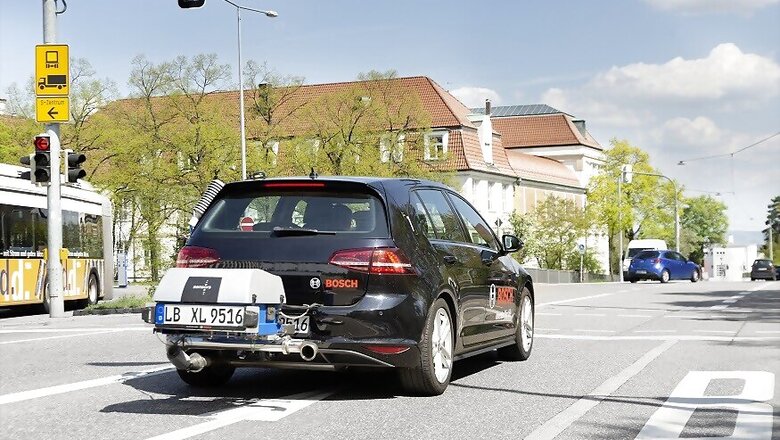
views
The recent demonizing of diesel as a vehicle fuel has scientists and engineers working overtime to deal with diesel exhaust emissions and their effect on air quality. A new technology from Bosch claims it could cut nitrogen oxide (NOx) emissions by 90 percent.
Only a month ago a team at Loughborough University in the UK reported that it had developed something called ammonia creation conversion technology (ACCT), which it claimed could almost eliminate NOx emissions altogether. The challenge was how to make viable for automotive applications.
But this new turbocharger and airflow-management technology from Bosch appears to be much closer to coming to fruition.
Current European standards state cars shouldn't emit more than 168 mg/km of NOx and by 2020, that will be further reduced to just 120 mg/km in real-world driving tests, and 80 mg/km under laboratory test conditions.
However, Bosch's new tech goes far beyond that. For example, a diesel-powered VW Golf would emit just 13 mg/km of NOx in mixed driving conditions, as measured using the latest RDE paradigms.

Even when driving in urban environments, where NOx emissions are often higher due to lower engine temperatures, the Bosch system in the diesel Golf emits just 26 mg/km.
Unfortunately, this isn't as simple as converting a production vehicle from a conventional engine to a 48-volt mild hybrid, as the system requires significant changes to the engine.
In fact, in the case of the Golf the changes were so significant the company refers to the vehicle as a "platform demonstrator."
Dr. Volkmar Denner, the chief executive of Bosch, said of the breakthrough at the company's annual press conference: "There's a future for diesel. Today, we want to put a stop, once and for all, to the debate about the demise of diesel technology." He then went on to add that the company was "pushing the boundaries of what is technically feasible."
Although the system can't be retrofitted to old models, as it's based on already-existing components, the tech is available immediately, and could be relatively easily incorporated into carmakers' production projects.
Given how sales of diesel cars are currently declining across Europe, new tech solutions will have to be adopted pretty soon if the decline isn't to become terminal for diesel.
Also Watch: Suzuki GSX-S750 First Ride Review | Cars18


















Comments
0 comment